Seasonal depression is a psychological disorder that occurs when the seasons of the year change. It is also known as seasonal affective disorder (SAD). People who have this condition experience it at the same time. It starts in fall, gets worse in winter, and disappears in spring. SAD often occurs in young adults, women, and teenagers. Suppose your loved one is grappling with depression. In that case, Summit Estate Recovery Center can help you understand the condition, and you will be able to offer your family member the much-needed support. To learn more, contact our team today at 800.701.6997.
Seasonal Affective Disorder
Data reveals that hundreds of thousands of Americans have seasonal depression. Besides, millions of people in the US grapple with mild winter blues. Most of those diagnosed with the condition are women. Individuals living at high altitudes or in cloudy regions are more likely to suffer from this disorder.
Nobody knows the exact cause of SAD. However, scientific evidence suggests that shorter days and less sunlight could be the cause. Winter conditions can change some chemicals in the brain, especially those that regulate sleep and mood.
Evidence suggests that insufficient light impairs the proper functioning of neurotransmitters, such as serotonin, which transmits information between nerves. Brain experts believe that exposure to light rays can help correct such imbalances.
Symptoms of Seasonal Depression
The disorder affects people differently. Contributing factors also vary from case to case. For example, families with a history of depression and other psychological conditions are at greater risk of developing the disorder.
Those who often struggle with SAD have most symptoms of ordinary depression. The typical seasonal depression signs include:
- Sadness and feeling of hopelessness
- Anxiety, panic attacks, and restlessness
- Daytime fatigue and lethargy
- Irritability and agitation
- Loss of interest in hobbies
- Extreme weight gain or loss
- Withdrawal from social activities
Seasonal depression signs can also resemble several other mental conditions, including bipolar disorder. A physician conducts several assessments to rule out such conditions before making a diagnosis for seasonal affective disorder.
Rehab Treatment for Depressive Disorders
Talk therapy can help treat many types of mental health issues. However, the most used treatment for seasonal depression is light therapy. The technique uses visors or specialized lightboxes to imitate natural light. The therapy session often lasts for half an hour daily.
A dawn simulator is another alternative option for mimicking the sunrise.
Do not attempt light therapy at home. It is a complex process, so it should only be performed in a rehab setting and under a doctor’s supervision.
Many rehab clients also benefit from medication-assisted treatment (MAT). Drugs like antidepressants can ease the symptoms of depression.
There is no single program that treats all mental conditions in all people. Therapists often combine different therapies. Each program teaches participants unique ways of dealing with their needs. For instance, our mental health treatment facilities use a myriad of therapy options, including:
- Cognitive-behavioral therapy (CBT)
- Experiential therapies
- Dialectical behavior therapy (DBT)
- Group therapy program
- Holistic therapy program
Furthermore, our treatment center will tailor your treatment to your unique needs.
Contact Summit Estate Recovery Center for Mental Health Treatment
If you have depression, you should seek professional help immediately before it deteriorates. Even if it is a loved one with the condition, rehab programs can offer an opportunity to overcome the effects of depressive disorders. Our therapists can use evidence-based approaches to design a comprehensive treatment plan for your unique needs. Seasonal depression is treatable, so let our experts help your family through recovery. Call Summit Estate Recovery Center today at 800.701.6997 for more information on depressive disorders or start the treatment process.
Summit Estate Recovery Center
